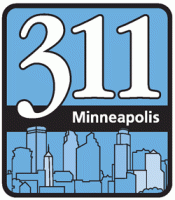One of my biggest frustrations with government organizations is their “silos of excellence” approach.
Somehow each and every government department or organization thinks it is a business unto itself, with little relationship to other departments within the same government, much less other nearby such as cities, counties, states, and fire districts. Many Police departments think and act like they are unique, with little relationship to other government functions. So do electric utilities (Seattle City Light), water utilities, parks departments and so forth.
People don’t live that way. We turn on the dishwasher which uses electricity from the power company and water from the water utility and then wastewater goes down the sewer to be managed by the wastewater utility. Then we put our trash on the curb for the solid waste utility to remove. We get in a car which has been licensed by the DMV to drive on streets maintained by the City and also County Transportation Departments (DOT) and then onto freeways maintained by the State DOT. We drive to parks which we expect to be clean and safe. If we crash into something we call 911 and expect the cops to show up and ticket the perpetrator who caused the crash and we want the fire department and paramedics there to extract us from our crushed vehicle.
More importantly, many significant societal problems cannot be addressed by just one government function. Crime is the most obvious, which isn’t so much a police problem as it is a problem with poor schools, jobs economic inequality plus inadequate support for healthcare and food. Environmental issues are another example, where keeping Puget Sound (or any other body of water) clean is a matter not just for the “Department of Ecology” or “Environmental Protection Agency”. Electric utilities (which often burn coal or oil in their generators), water and wastewater utilities, parks and recreation and natural resource departments all need to cooperate.
Our lives are a seamless continuum.
Governments are organized by departments each with a specific function. The Parks Department maintains the parks, the police department enforces the laws, the fire department has the paramedics to help with medical emergencies. The DOT maintains the street with the water and sewer lines running underneath it and the electric power lines running overhead.
This makes sense because there are so many specialist jobs involved. I don’t want firefighters wasting their time mowing the grass in parks or electrical lineworkers writing parking tickets.
Why can’t these departments work together to make the services more seamless and efficient?
Example 1: who do you call? If you have an emergency, you call 911 almost everywhere in the United States. Everyone knows that and we teach our kids to do it at an early age. But for almost every other service there are a bewildering series of different numbers you depending on what service you want or what problem you have. If you get chased by an angry dog do you call the police or the fire department or animal control? If a streetlight is out do you call the streets/transportation department or the electric utility or someone else?
Many major cities have cut through this crap by implementing 311 as a non-emergency number. But most counties, cities and states have not done so. 311 is far from ubiquitous. Seattle, for all its high tech reputation, is woefully behind in this, forcing people to squint through pages and pages of telephone numbers in six point font to get a non-emergency service.
Example 2: information technology (near and dear to my heart). Does each department need to be buying its own desktop computers and software, and hiring its own employees to maintain them? Does every individual department need its own financial management system and personnel management software? The answer is clearly no – there’s nothing unique about the computers used in the water utility as distinct from the parks department. In fact, there’s no real reason government employees need to even perform these functions. Some major cities such as Minneapolis and Chicago and Riverside have outsourced most of this work to private providers.
This department-by-department approach leads to many absurdities, such as employees in a city garage installing light bars on a police cruiser, then having the cruiser driven to a radio shop for installation of two-way radios and brackets to hold a computer and then having it driven to a police computer shop where the computer is installed and software loaded.
Certain information technology is unique to departments – a Building Department has a construction licensing and permitting software whereas Parks will have software to manage recreation classes and allow citizens to sign-up. But there’s also a lot of “enterprise” software such as budgeting and financial management and document storage which should be purchased and maintained separately, not department-by department.
All of this lack of trusting another department to do information technology, accounting, finance, human resources or similar functions leads to inefficiency and waste of taxpayer money.
So why do cities and counties set themselves up to operate vertically as independent departments?
One culprit is a department’s own view of itself as an independent entity with its own customers and customer service. A public works department may become so self-centered that it thinks it needs its own customer call center and walk-in service center for customers and its own website with its own unique logo and brand.
Such a situation arises when department directors and senior staff are long-term employees who have outlasted many elected officials and collected significant positional power.
Another way this comes about is long-term employees in an IT unit or call center who have convinced their managers of their own importance – the department can’t function without their personal presence and unique experience. Then these employees fight over turf – “this is MY department’s responsibilities, not yours”. Government managers count their importance by the number of employees they manage and the amount of budget they control. And the jealously guard and defend that turf.
But citizens rarely care about such crap. They typically know who the mayor is and may also know their council member, and they want good service from their government, irrespective of the department lines. Smart Mayors and city/county managers realize this, and set up strong, well-managed central services which are cross-departmental. Strong mayors confront departmental fiefdoms and employee self-importance, understanding citizen service trumps all that. In smaller jurisdictions the city or county will partner with neighboring cities or counties to jointly offer better services with more efficiency. Multi-city or county cooperation requires gutsy elected officials who are willing to give up a measure of control in return for better services.
But all of this – implementing a 311 service or consolidating a technology function – requires strong elected officials with a vision of citizen-centric customer service.






Pingback: Link: Where new ideas take root – FT.com – The Turning Grille
Well said Bill. 311 is an excellent concept.
Bill, You must still be tuned in to Seattle. I just met with my new Director and the new CTO about Customer Service, discussing integrating Work Management with the CSR system for Citywide Customer Service. They both said as the meeting was ending, “Why doesn’t Seattle have a 311 system?” That’s a good question and a long story and I don’t think I even know the half of it. Good Story!
It is crazy we don’t implement 311. All gets back to electing all your city council members at large – they don’t feel the pain of constituent complains, only the Mayor does, so the council doesn’t feel any urgency to fund 311. That will change! Thanks for the comment, Amy.
hi, bill. though i agree with the premise and the title of your article, you lost me towards the end when you attributed the problem to individual employees who have been in their jobs for a while. the “few bad apples” theory has been debunked across the many settings that struggle with issues of inefficiency, fraud, etc. maybe back that piece up with some research? it seems terribly anecdotal. my understanding is that systems problems require systems solutions. the recommendations you make have been tried in many cities, counties, states, and come with their own set of problems.